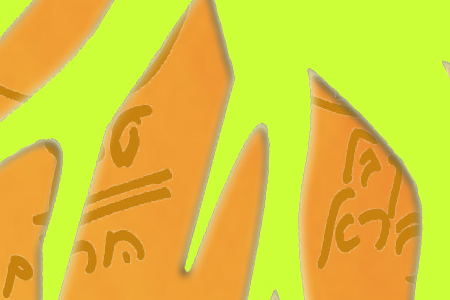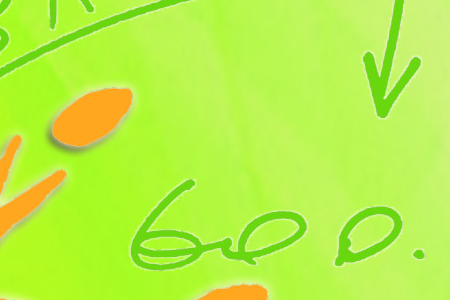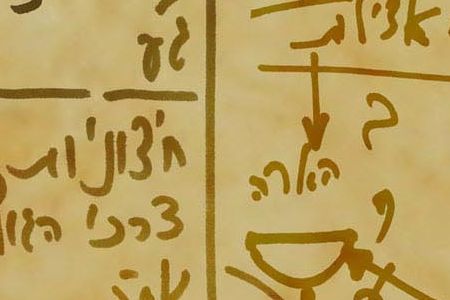“The Essence of Religion and Its Purpose” is an article written by Kabbalist Yehuda Ashlag (Baal HaSulam), discussing the meaning and essence of Kabbalah. In this article, the word “religion” is not proposed in the same fashion as we understand the term these days, that is, as referring to a set of beliefs for understanding the meaning and purpose of our lives and the universe. “Religion” rather refers to the actual attainment of eternity and perfection. The wisdom of Kabbalah is intended for developing oneself with the aim of actualizing this attainment.
Over the generations, human development has been under the control of nature’s influence. We have developed unconsciously, not knowing the cause of our existence and in the meantime have adhered to various beliefs and philosophies in order to provide us some kind of framework while living in this world. This represents one specific phase of our development, “the unconsciousness phase.”
In our era, this unconsciousness phase is coming to an end. We are gradually breaking through into the next phase—“the consciousness phase.” Moreover, nature is necessitating this next phase of development.
Until today, nothing has depended upon the person. “Unconscious development” means that one is simply attracted toward some goal by the pleasure one pictures for oneself in that goal; or one is repelled to go somewhere else by means of pain. All of our progress throughout history has been controlled by remaining in any state as long as it is tolerable, and when we could not tolerate it any longer, we looked for a way out and moved onto a new and different path. We have acted this way all throughout history, in our lives today, and all of nature acts in the same way: toward pleasure and away from pain. This defines our unconscious development.
Today, in the conscious development phase, our development is dependent upon us. If we continue to simply follow nature’s commands, in other words, follow our thoughts and desires without any true awareness of their cause, we will be led into intensifying pain.
The alternative to this path is if we discover a means for attaining what exactly gives rise to our desires and thoughts, and start working on ourselves in order to discover this cause. Kabbalists state that discovering this cause is the purpose for our being here, and the sole purpose for studying the wisdom of Kabbalah.
This cause will be revealed to everyone, however our development leading to it can either be one of getting slapped about without ever knowing why (i.e. unconscious development), or one that discovers the goal before us, and a method for speeding up our understanding of where everything is coming from and why it is happening, and how to use it all in order to reach our final state in the shortest possible time.
We will then develop consciously toward it—researching and understanding how nature operates upon us, and discovering the complete picture of nature in order to live in a new dimension of life, peacefully and comfortably. This all depends upon the revelation of the common purpose for each and every person, of how incredible and great it is, and making it attractive and worthwhile to choose to advance towards.
The wisdom of Kabbalah has stemmed down to us in order that we discover the goal and purpose of our existence. Neither a philosophy, nor a set of beliefs, the wisdom of Kabbalah rather teaches how one can work on oneself in order to attain more complete levels of perception which are concealed from our inborn, egoistic mode of perceiving through the five senses.
The wisdom of Kabbalah, in general, includes our whole life. Everything that exists was created to correctly use ourselves and everything that has been prepared purposefully, to achieve life’s highest goal quickly, and in the most comfortable, short and enjoyable way. Nothing was made so that we “just exist” in it. When we reach life’s goal, we will feel like we are in a state of eternal and perfect motion and existence, without death, without birth, without all of the problems that we perceive in our world.
Today we are being pushed to realize how there is no worse state of existence than our present state of living in this world. This is in order to develop in us the desire to ascend to an altogether new state of existence, of boundless fulfillment and a perception of our eternal state of life—the purpose of our lives.
The Free Kabbalah Course is based on the articles of Baal HaSulam and provides step-by-step guided learning from experienced Kabbalah instructors of Kabbalah’s basic concepts. Baal HaSulam was the first Kabbalist in history who wrote articles not only for Kabbalists, but for the broad public, in order to explain Kabbalah’s fundamentals, because he understood the need that would emerge in humanity to answer deeper questions about life’s meaning and purpose. Therefore, if you’re interested in such topics, we recommend taking the free course and start learning about the world around you and inside you anew. Click the banner below to sign up for the free course …





